Corn (maize) is considered both a vegetable and a grain. This food is popular all over the world and has been included in meals for centuries.
Corn is rich in vitamins B, C, minerals and fiber, so it is not only a food that provides nutrition for the body but also has the effect of beautifying the skin and is very good for health.
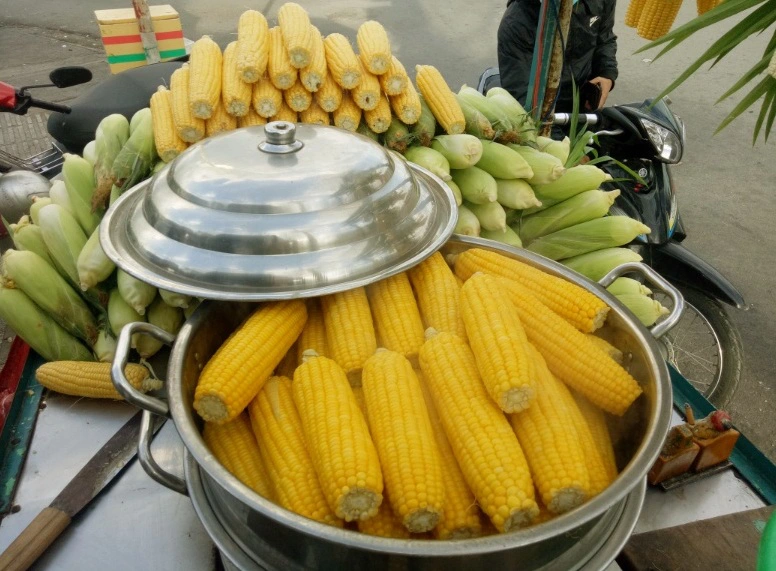
Boiled corn is an extremely easy dish to prepare and is loved by many people.
Below are some benefits of this food for users:
Blood sugar control
According to Livestrong, a common misconception among people with diabetes is that all starches are bad for health. However, corn can bring many benefits to people with diabetes when eaten in moderation.
Corn is a source of energy, fiber, vitamins and minerals such as potassium, magnesium, iron, zinc. Research from Cornell University (USA) shows that consuming a lot of flavonoids in corn helps reduce the risk of chronic diseases such as diabetes, cardiovascular disease...
Half a cup of corn kernels contains 2 grams of fiber, 5 grams of protein, and 5 grams of fat (mostly heart-healthy monounsaturated or polyunsaturated fat). Moderate amounts of resistant starch (about 10 grams per day) from corn can reduce glucose and insulin responses.
Corn is also a low glycemic index food (GI 52). Diabetics can choose low GI foods like this because they tend to release glucose slowly and steadily, helping to control blood sugar.
Prevent cancer
Corn contains a chemical called beta cryptoxanthin. Beta cryptoxanthin is chemically similar to beta carotene. The body converts beta cryptoxanthin into vitamin A when consumed.
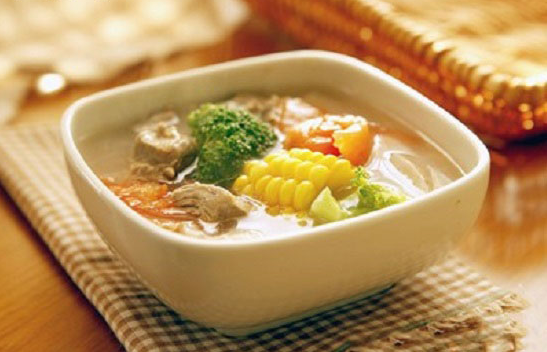
Mixed vegetable soup.
According to research published in the journal Cancer Epidemiology Biomarkers and Prevention, there is an inverse relationship between beta cryptoxanthin consumption and lung cancer development.
This means that the more beta cryptoxanthin you consume, the lower your risk of lung cancer. At the same time, another study suggests that consuming whole grains like corn may reduce your risk of breast cancer.
Weight loss support
Corn is one of the foods on the list of safe weight loss foods that you should consider.
If you are looking to lose weight, eating a lot of corn will help you feel full quickly and not have the feeling of snacking. The high fiber content also helps the body feel full quickly without excess fat.
Improve digestive system
If you're trying to boost your sluggish digestive tract, a little corn can go a long way.
A study published in the Journal of Nutrition found that consumption of polydextrose, a soluble fiber found in corn, was associated with more frequent stool production.
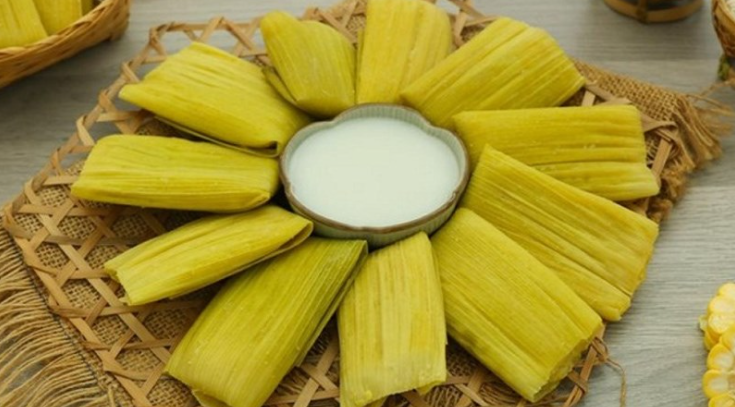
Steamed corn cake with coconut milk.
Improve eye health
Corn is also rich in the carotenoids zeaxanthin and lutein, which have been shown to promote macular health.
According to a study published in Nutrients, lutein and zeaxanthin may prevent and reduce cataracts and age-related macular degeneration.
Vitamin C may also help reduce the risk of cataracts, according to the American Optometric Association (AOA). Other foods high in carotenoids include carrots, leafy greens, and sweet potatoes.
Improve heart health
Corn is extremely rich in folate, also known as vitamin B9. According to Natural Home Remedies, consuming folate helps reduce homocysteine levels in the body. Homocysteine is an amino acid that can damage blood vessels.
High homocysteine levels can put you at risk for heart attack, stroke, and peripheral vascular disease. Daily folate supplementation through corn consumption can reduce your risk of heart attack by up to 10%.
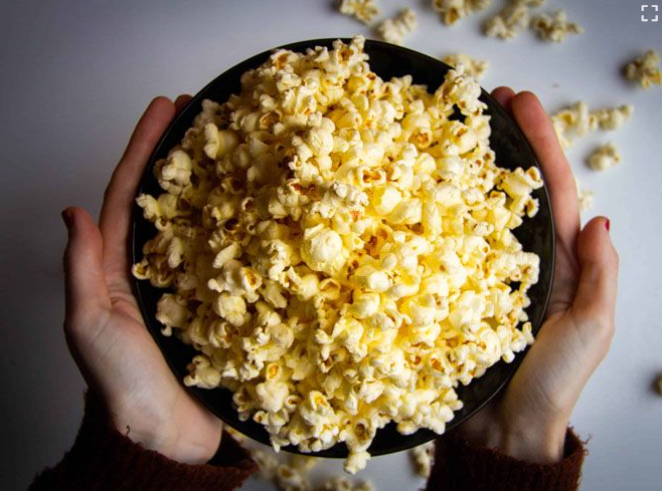
Popcorn is a snack that everyone loves.
Improve memory
Corn is high in thiamine, also known as vitamin B1. According to WHFoods, thiamine is an essential nutrient for brain cells and cognitive function. The body needs thiamine to produce acetylcholine.
Acetylcholine is a neurotransmitter that is essential for maintaining memory. One of the main factors associated with Alzheimer's disease is low acetylcholine levels. Therefore, eating corn every day can help you maintain good memory as you age.
Source





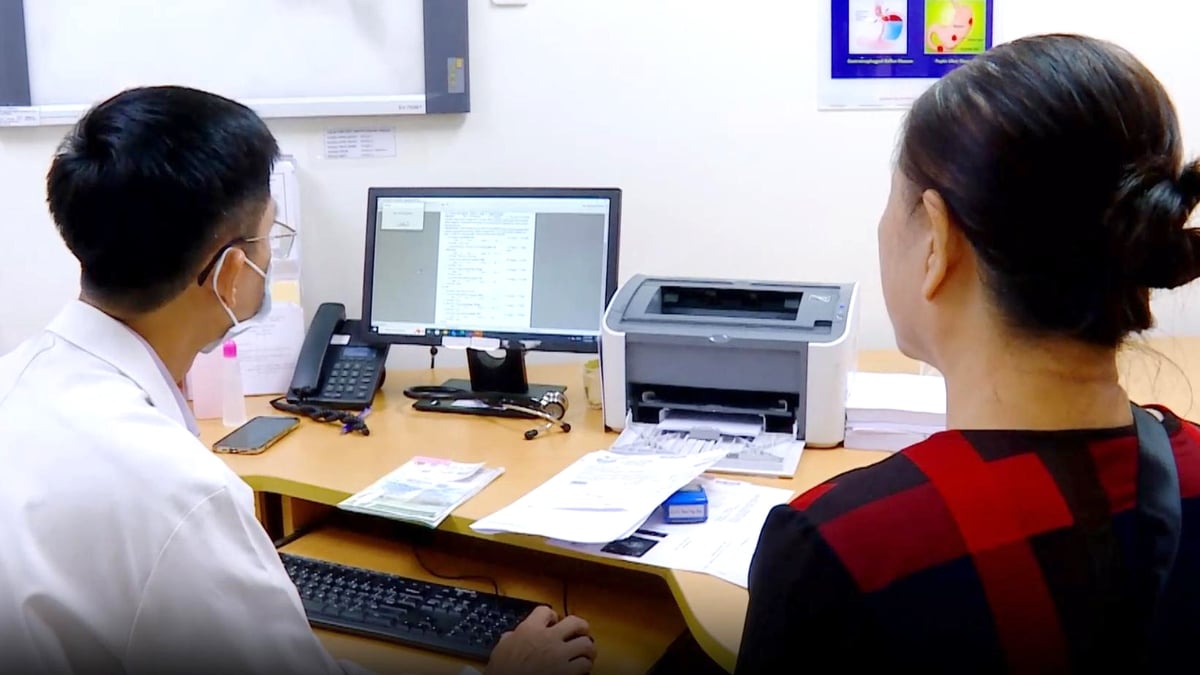





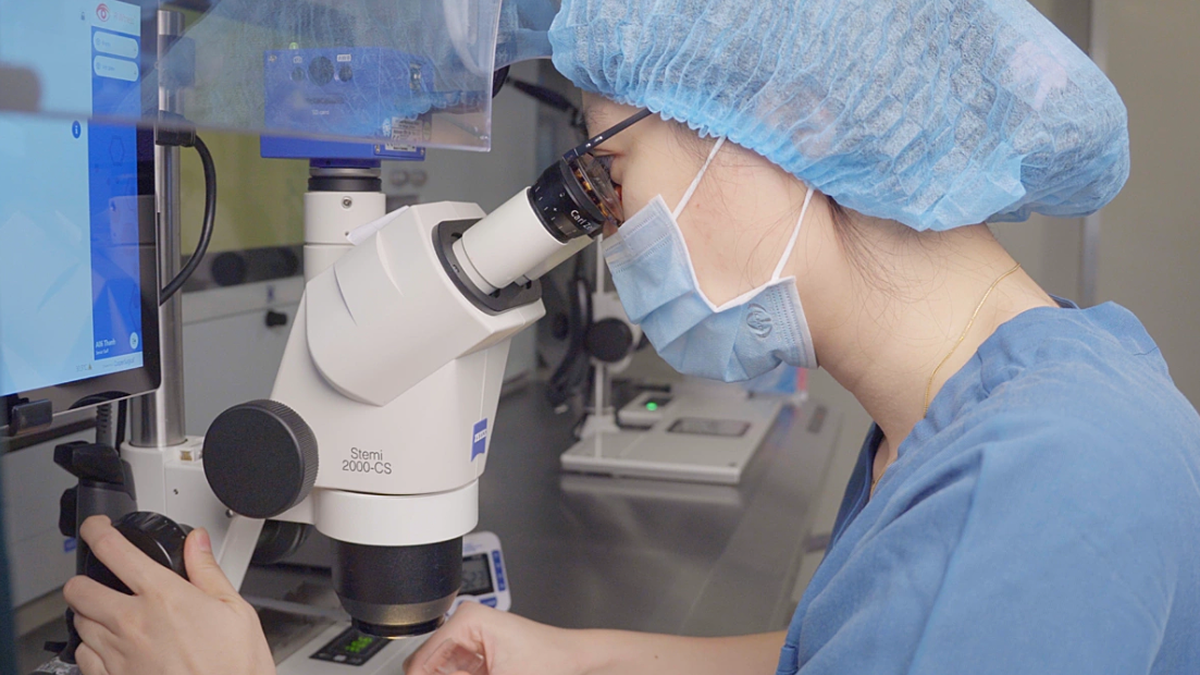












































![[Maritime News] Container shipping faces overcapacity that will last until 2028](https://vphoto.vietnam.vn/thumb/402x226/vietnam/resource/IMAGE/2025/7/30/6d35cbc6b0f643fd97f8aa2e9bc87aea)













































Comment (0)